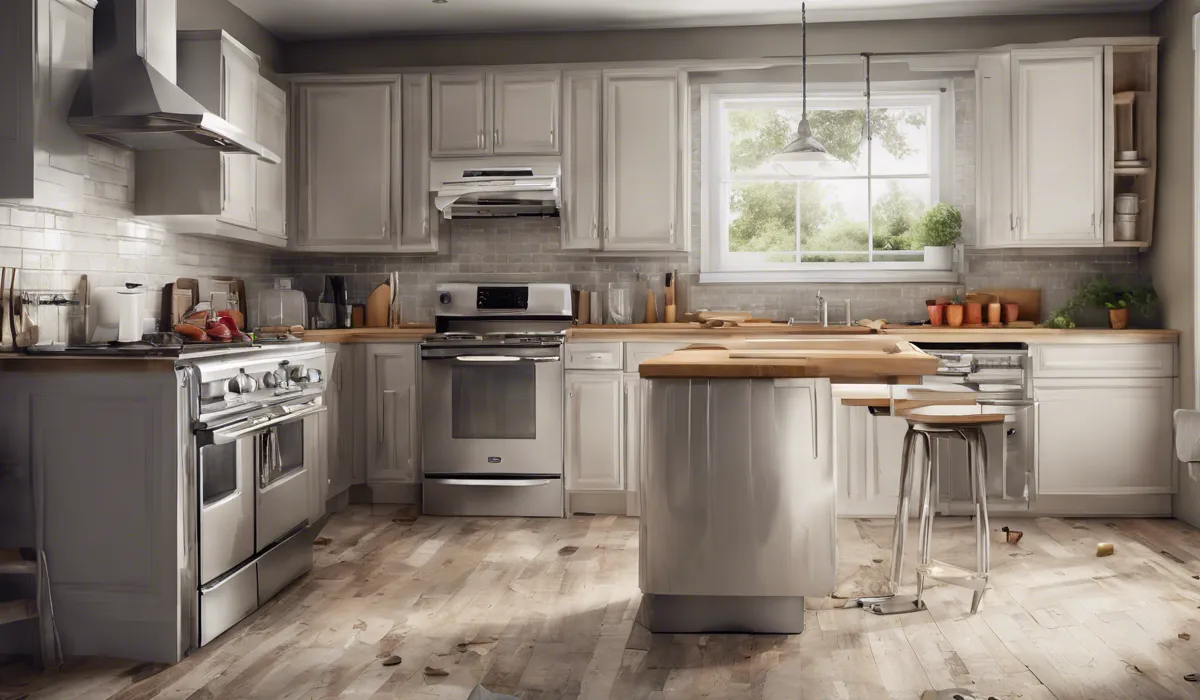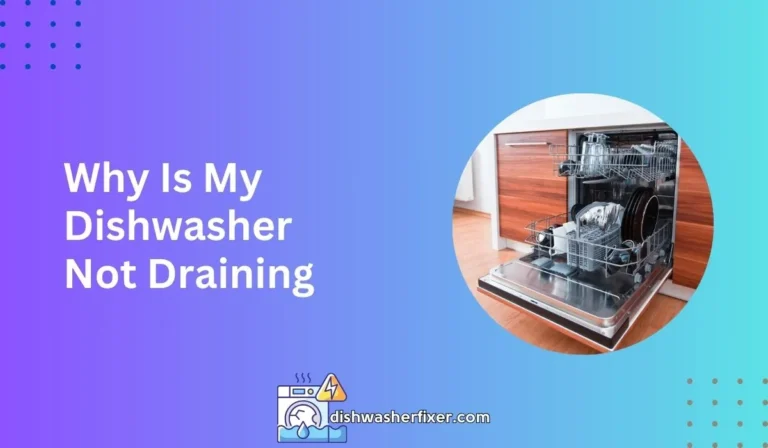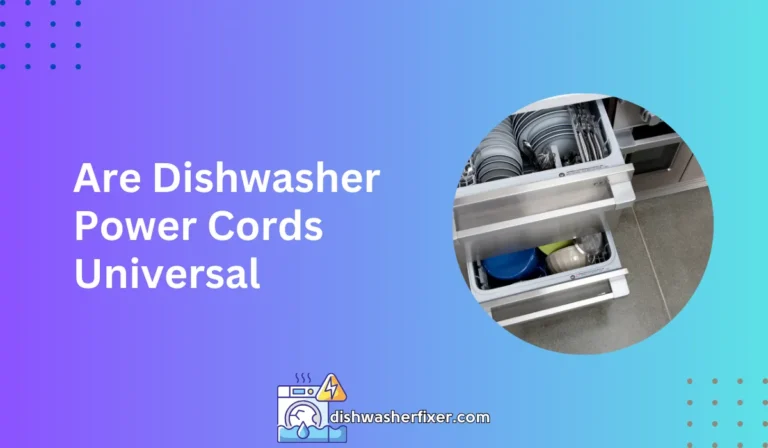Does A Landlord Have To Fix A Dishwasher? Rights Explained
Whether a landlord must fix a dishwasher depends on the lease agreement and local laws. If the lease includes the dishwasher as an amenity, the landlord is typically responsible for repairs. However, if misuse by the tenant caused the damage, they may be liable.
Understanding the Lease Agreement and Landlord Responsibilities

The Role of the Lease Agreement in Defining Appliance Maintenance
The lease agreement serves as the foundation for the relationship between tenant and landlord, detailing the responsibilities of each party. It is critical for tenants to review their lease documents with care, especially the sections that address appliance maintenance.
The lease should outline which appliances are included in the rental property and who is responsible for their upkeep. If the dishwasher is listed, the lease may specify whether the landlord will handle repairs or if it falls under the tenant’s jurisdiction.
What are Landlords Typically Responsible For?
Landlords are generally responsible for ensuring that the rental property is habitable and safe. This includes maintaining the property’s structural integrity, plumbing, heating, and electrical systems.
When it comes to appliances, landlords often provide and maintain those that are essential for basic living standards, such as a refrigerator or stove. Whether a dishwasher qualifies as essential can vary, but it is commonly seen as a standard amenity in many rental properties.
Does the Lease Specify Dishwasher Maintenance?
It is crucial to check if the lease agreement explicitly mentions the dishwasher. If it does, then the lease should detail the extent of the landlord’s responsibility for repairs.
In cases where the lease does not mention the dishwasher, or it is ambiguous, tenants may need to discuss the matter with the landlord to clarify responsibilities before signing the agreement.
The Difference Between Repairs and Improvements
Understanding the difference between repairs and improvements is important. Repairs are actions taken to restore an appliance or feature to its original working condition.
Improvements, on the other hand, are upgrades that enhance the property’s value or functionality. Landlords are typically responsible for repairs needed due to normal wear and tear, while improvements are at the landlord’s discretion.
State Laws and Appliance Repairs

Overview of State Laws Regarding Landlord Obligations
State laws can greatly influence a landlord’s obligation to repair or replace appliances like dishwashers.
While specifics vary from state to state, most laws require landlords to keep rental properties in a habitable condition. This includes complying with building codes and making necessary repairs promptly.
How Habitability Standards Affect Appliance Repairs
Habitability standards are legal requirements that ensure rental properties are fit for living. These standards typically cover essential services such as heat, water, and electricity.
While a dishwasher may not fall under essential services, if provided by the landlord, it may be subject to repair under the premise of maintaining the agreed-upon living conditions.
The Distinction Between Required Repairs and Amenities
There is a clear distinction between repairs that are required by law, due to wear and tear or safety issues, and those that are considered amenities.
Amenities, such as a dishwasher, may not be legally required to be repaired, but if they were offered at the time of lease signing, the landlord may be contractually obligated to maintain them.
Examples of State Laws with Specific Appliance Repair Clauses
Certain states have specific clauses in their landlord-tenant laws that address appliance repairs.
For instance, in California, landlords must maintain any appliance they provide in good working order. Tenants should become familiar with their state’s laws to understand their rights and the landlord’s obligations.
Handling Dishwasher Repair Requests

Steps for Tenants to Request Dishwasher Repairs
Tenants should follow a formal process when requesting dishwasher repairs. This typically involves notifying the landlord in writing, describing the issue, and requesting a timely repair. Keeping a record of all communications can be vital if disputes arise.
The Landlord’s Response Time and Repair Process
Upon receiving a repair request, landlords should act promptly. While no universal rule dictates exact response times, many states require repairs to be made within a “reasonable” timeframe. Landlords should communicate with the tenant about the repair process and expected timelines.
What if the Landlord Refuses or Delays Repair?
If a landlord refuses or unduly delays the repair of a dishwasher, tenants have several options.
They can remind the landlord of their obligations under the lease and state law, and if necessary, escalate the matter to seek enforcement of their rights.
Remedies for Tenants: Repair and Deduct, Withhold Rent, or Report to Local Housing Authorities
Tenants may have the option to “repair and deduct,” meaning they can hire a professional to fix the dishwasher and subtract the cost from their rent.
Withholding rent is another potential remedy, but it must be done cautiously and in compliance with state laws to avoid eviction.
Reporting the issue to local housing authorities can also be an effective measure, as they may intervene on the tenant’s behalf.
FAQs About Landlord Responsibilities for Dishwasher Repairs
Is a landlord required to fix a broken dishwasher?
Yes, if the lease agreement specifies that the dishwasher is included as an amenity, the landlord is typically responsible for repairs, unless the damage resulted from tenant misuse.
Can a tenant be held responsible for dishwasher repairs?
A tenant may be liable for repairs if the damage to the dishwasher is due to misuse or negligence on their part.
Do local laws affect a landlord’s obligation to repair a dishwasher?
Yes, local housing laws can influence a landlord’s responsibility to repair a dishwasher, and these laws vary by location.
What should a tenant do if a dishwasher in a rental property breaks down?
The tenant should notify the landlord promptly and in accordance with the procedure outlined in the lease agreement.
If a dishwasher isn’t mentioned in the lease, must a landlord still fix it?
It depends on local laws and whether the dishwasher is considered an essential appliance. If not specified in the lease, the landlord may not be obligated to repair it unless required by local statutes.
Final Thoughts
The obligation of a landlord to repair a dishwasher hinges on the lease specifics and jurisdictional statutes.
When a lease lists a dishwasher as included, landlords generally bear the repair responsibility, unless tenant misuse is the cause of the malfunction, which could shift the burden of repair costs to the tenant.





